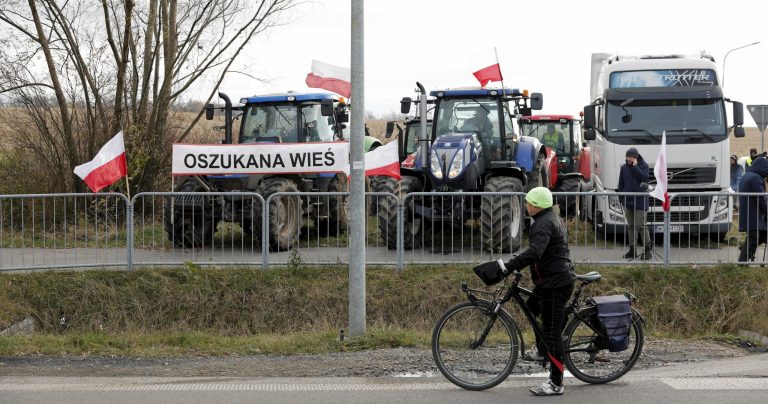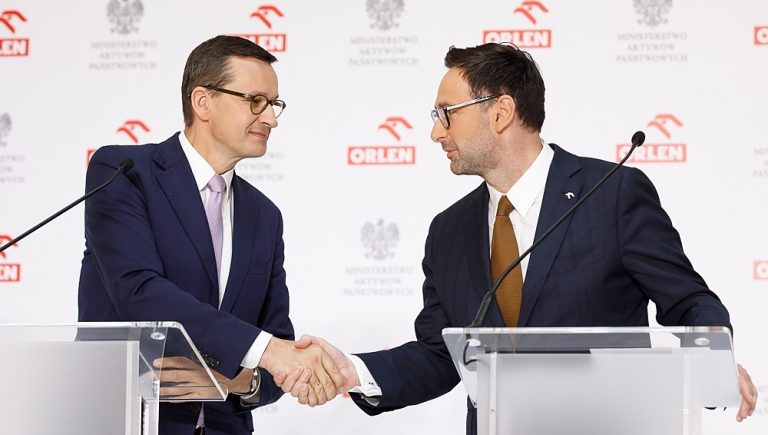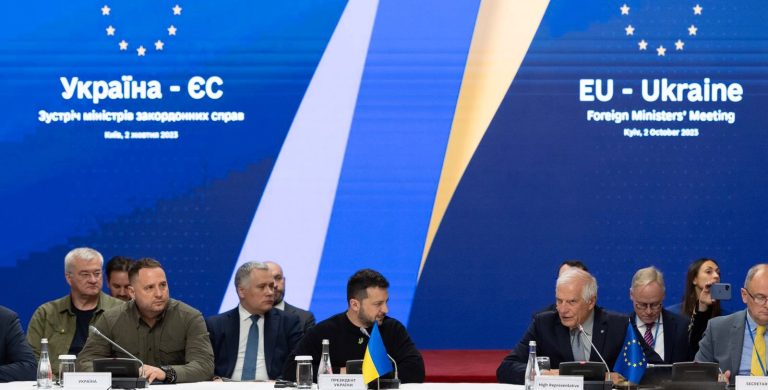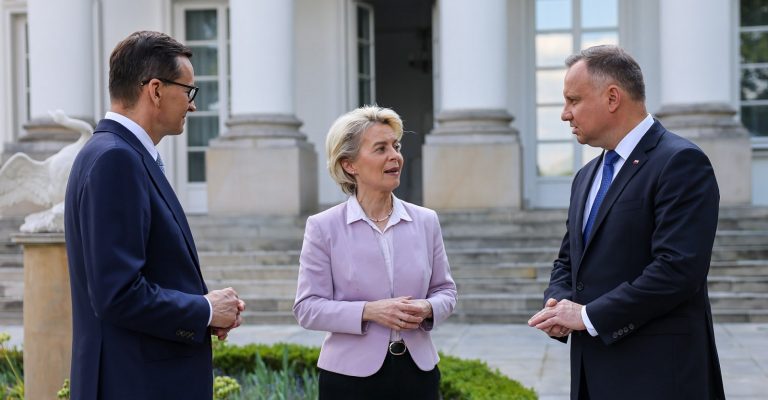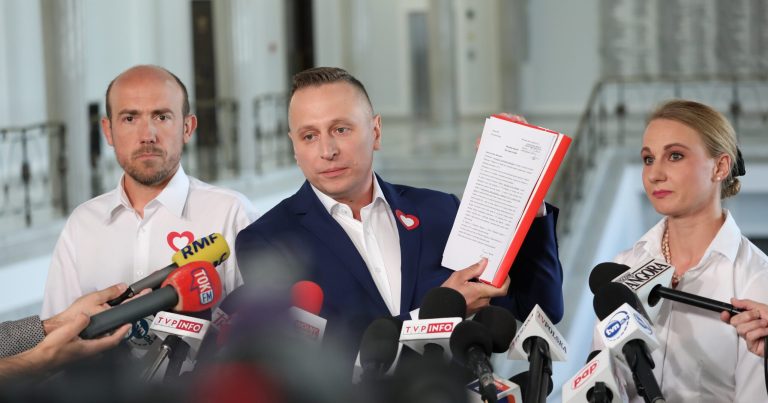What will happen in Poland’s local elections?

By Aleks Szczerbiak
One would expect the newly elected governing parties to do well, and the recently defeated right-wing opposition to struggle, in local elections held in the aftermath of last October’s parliamentary election.
But with the first serious conflicts emerging within the ruling coalition, the respective vote shares secured by the eclectic agrarian-liberal centrist Third Way (Trzecia Droga) and the radical right could be pivotal in determining a number of closely fought regional elections.
First test for the new government
On 7 April, Poles will vote for thousands of councillors and local mayors in parish, county and regional elections, with second-round run-offs two weeks later where no mayoral candidate has secured more than 50% of the vote. These local elections were scheduled for last autumn but postponed for half a year, officially to avoid a clash with last October’s parliamentary poll.
President Duda has approved the postponement of next year’s local elections to 2024.
The ruling party says it is necessary for logistical reasons. But the opposition argues it is a political move and experts have expressed doubt over its constitutionality https://t.co/61b00rj65D
— Notes from Poland 🇵🇱 (@notesfrompoland) November 23, 2022
Although they have been extremely low key, as the first major test of public opinion since the parliamentary election that ended eight years of rule by the right-wing Law and Justice (PiS) party, they will be one of the most important political events of the year.
Last December, a new coalition government led by Donald Tusk, who had served as prime minister in 2007-14 and then European Council president in 2014-19, was sworn in.
Tusk is leader of the liberal-centrist Civic Platform (PO) which, after an eight-year interlude in opposition, once again became the country’s main governing party.
The new coalition also includes the Third Way alliance – which itself comprises the agrarian-centrist Polish People’s Party (PSL), and the liberal-centrist Poland 2050 (Polska 2050) grouping formed to capitalise on TV personality-turned-politician Szymon Hołownia’s strong third place in the 2020 presidential election – and the smaller New Left (Nowa Lewica) party, the main component of a broader Left (Lewica) electoral alliance.
Poland’s new government is a diverse coalition ranging from left to centre-right and contains a mix of big names and new faces, including some from outside politics.
Read our profile of every minister and some of the challenges each will face ⬇️ https://t.co/J1xfrmHHdj
— Notes from Poland 🇵🇱 (@notesfrompoland) December 13, 2023
Last November, Hołownia was also elected to the high-profile post of speaker of the Sejm, the more powerful lower parliamentary chamber, which he is using to promote himself in anticipation of a summer 2025 presidential bid.
Tough challenge for PiS
The local elections will be a particularly tough challenge for PiS. Parties that have recently lost an election often perform badly in so-called “second order” polls held in its immediate aftermath, because their demoralised supporters are much less likely to turn out and vote.
According to the Politico Europe aggregator of Polish opinion polls, PiS is currently averaging around 30% support compared with 35% in the parliamentary election. A second consecutive election defeat would exacerbate the already-deep internal divisions within the party and further de-motivate its activists ahead of the June European Parliament poll, the next critical electoral test.
„PiS faces its most serious crisis for many years and every scenario is possible, including the party imploding and not surviving,” writes @AleksSzczerbiak.
„The situation could come to a head [after] anticipated local and European election defeats” https://t.co/V9aGwcYhSz
— Notes from Poland 🇵🇱 (@notesfrompoland) March 11, 2024
Local elections have always been difficult ones for PiS because much of the media focus goes on the high-profile mayoral contests in Poland’s larger towns and cities where the party has no prospect of winning.
In fact, as the only local government tier contested mainly on national party lines, the aggregated vote share in elections to the 16 regional authorities is the key barometer of party support. Regional councils also play an important role in distributing EU funds and are a key source of local party patronage.
In the previous 2018 local elections, PiS won 34% of the vote at this tier with an outright majority in six authorities, and secured control of a further two thanks to a defection in one and a coalition with non-party independents in another.
However, because PiS has weak coalition potential if the party does not win outright majorities it will struggle to find partners to retain control of these authorities, even it if remains the largest party.
In 2014, for example, PiS won the most seats in six regional assemblies but only ended up controlling one, its Podkarpacie stronghold. This time, PiS will do very well to retain control of even three regions.
Latest Polish polls continue to show KO comfortably ahead of PiS, although not by as large a margin as some of the more dramatic polls suggest. Worth noting that Trzecia Droga’s support looks to have stabilised. pic.twitter.com/cbD51yui4M
— Ben Stanley (@BDStanley) March 14, 2024
Its only realistic potential local coalition partner is the radical-right Confederation (Konfederacja) party, which is fighting the elections on a joint list with non-party independents. However, Confederation is not an especially reliable partner and will struggle anyway to secure representation in many assemblies.
Although the formal electoral threshold is 5%, given the size of the polling districts parties need to win around 10% to secure representation, ideally nearer 12% to be sure.
Confederation’s 7% in October’s parliamentary election was extremely disappointing; at one point polls suggested that it could secure well over 10% and emerge as the “kingmaker” in the new parliament. However, it appears to have recovered some ground and, according to Politico Europe, is currently averaging around 10% again.
First serious conflicts within the governing coalition
One would also expect the parties that were victorious in last October’s parliamentary poll to still be enjoying a post-election honeymoon and do well in local elections held so soon after their victory. Sure enough, Politico Europe shows that, for the first time in years, PO has overtaken PiS in the polls with 33% support.
However, at the same time, the first serious conflicts have also started to emerge within the governing coalition. First, PO suddenly rejected the idea of standing a joint candidates list with The Left for the regional assemblies, no doubt more confident that it could defeat PiS single-handedly.
Given the de facto 10% electoral threshold, this is a problem for The Left, which is averaging around 9% support in the polls (roughly the same as it secured last October).
The three groups that make up Poland’s new governing coalition are set to stand separately in April’s local elections.
The idea of standing jointly had been floated, but announcements by each group yesterday appear to have ended that possibility https://t.co/mqHL5zamlI
— Notes from Poland 🇵🇱 (@notesfrompoland) January 31, 2024
PO’s unexpected move meant that, in order to raise its profile, The Left had to find ways of differentiating itself from its governing partners, which it did by focusing on the highly contentious and divisive issue of abortion.
In Polish politics, the terms “left” and “right” refer more to attitudes towards moral-cultural questions than socioeconomic policy, and abortion has become one of The Left’s signature issues.
Moreover, many commentators felt that the huge protests against the Polish Constitutional Tribunal’s October 2020 ruling, that abortions on the grounds of serious and irreversible birth defects are unconstitutional, was a key turning point in the previous PiS government’s slump in support from which it never really recovered and which culminated in its election defeat.
As a consequence, the abortion issue has assumed huge symbolic importance for many of the new government’s supporters who hoped that it would introduce legislative changes to expand access to it.
Poland’s prime minister has admitted it was a “mistake” for the ruling party to push for the constitutional court to introduce a near-total abortion ban in 2020.
He claims “he has always been a supporter” of the abortion law that existed before the ruling https://t.co/QObza3Raxk
— Notes from Poland 🇵🇱 (@notesfrompoland) November 6, 2023
However, although there is broad consensus within the ruling coalition that the tribunal’s ruling should be reversed, it is very divided on what precise form that should take. Both PO and The Left have proposed bills that would not only reverse the near-total ban but go even further liberalising the law to allow abortion, more-or-less on demand, up to the twelfth week of pregnancy.
But the Third Way wants a return to the much more restrictive so-called abortion “compromise” that existed before the tribunal ruling, together with a national referendum on the issue.
PSL’s moderate social conservatism on moral-cultural issues reflects its predominantly rural and small-town electoral base, while Hołownia is a practising Catholic (albeit a very liberal one) who has expressed opposition to abortion on demand in the past.
A new phase of confrontation over this issue began when Hołownia announced that parliamentary work on legislation aimed at liberalising the abortion law would not begin until after the first round of voting in the local elections.
He argued that this was necessary to avoid the legislation becoming a victim of the ongoing election campaign because, he claimed, if parliament proceeded with the various abortion bills before polling day there was a danger that both sides would feel under pressure to take tough positions and all of them would be rejected.
The left and centre-right wings of the ruling coalition have clashed over the speaker of parliament’s decision to delay bills that would end Poland’s near-total abortion ban.
He says they should not be debated amid the campaign for April’s local elections https://t.co/GAv3YWrvwG
— Notes from Poland 🇵🇱 (@notesfrompoland) March 6, 2024
Hołownia’s announcement was, however, met with anger from The Left, which claimed that he was delaying the debate because some Third Way election candidates, especially those standing for PSL, were afraid of offending local parish priests who remain influential civil society actors in smaller towns and rural areas.
Is the Third Way losing support?
Interestingly, in a swipe at his coalition partners, Tusk called upon PO supporters who had voted tactically for the Third Way in the parliamentary election to return to the fold and vote in line with their beliefs in these local polls.
In fact, having seen a post-election bounce in support, the Third Way seems to be slipping back to around, or even a little below, the 14% that it achieved last October. PSL always performs much better in local elections due to its strong grassroots organisational base together with the fact that turnout in the rural areas that form the bedrock of its support is always higher in these polls. But Poland 2050 will find it more difficult given that it lacks a local membership base.
Consequently, the Third Way has also been trying to find ways of shoring up its support, particularly among the business community, by making changing the calculation of health insurance premiums for entrepreneurs a condition of it remaining in the governing coalition.
In the event, PO finance minister Andrzej Domański announced a partial reform but which The Left has criticised for mainly benefiting the better-off. In raising this issue, the Third Way was no doubt conscious that some of the entrepreneurs who voted for it last October had at one point intended to support Confederation, and that these voters could switch back.
Indeed, in a number of current PiS-run regional assemblies, the election is on a knife edge and the Third Way and Confederation’s respective vote shares could determine who ends up controlling them. Even the election of a single Confederation councillor could prove pivotal in some regions.
A dry-run for the next presidential election?
The most prestigious and high-profile local poll is the Warsaw mayoral election. PO incumbent Rafał Trzaskowski – who narrowly lost the 2020 Polish presidential election, and is seen by many commentators as the party’s most likely candidate in the 2025 race – remains the undisputed favourite.
However, the scale of Trzaskowski’s victory will also be important and anything less than a repeat of his decisive 2018 first-round victory will be seen as a disappointment.
PiS are standing the former regional governor of Mazovia, which encompasses Warsaw, Tobiasz Bocheński who is very presentable but has no chance of winning.
We spoke with @TABochenski, PiS’s candidate for Warsaw mayor in next month’s local elections.
He emphasised a focus on pragmatic, local issues rather than the „ideological quarrels” that he believes played a role in PiS losing power nationally last year https://t.co/w8LBDnqtda
— Notes from Poland 🇵🇱 (@notesfrompoland) March 15, 2024
Notwithstanding the fact that he is a political unknown and PiS is on the defensive, as is the case with most Polish cities Warsaw is a liberal-left heartland.
In fact, Bocheński’s candidacy is seen as a way of building his national profile ahead of next year’s presidential election, presumably to repeat PiS’s manoeuvre of selecting a fresh face, which worked so well in 2015 when current party-backed President Andrzej Duda won a shock victory over the PO-backed incumbent. So a good result for Mr Bocheński would be securing around 30% and forcing Trzaszkowski into a run-off.
This time, Trzaskowski also faces a more significant challenge on his left flank from Magdalena Biejat from the radical-left Together (Razem) party (part of The Left electoral alliance but not the governing coalition), who represents the Warsaw district in the Senate, Poland’s less powerful second parliamentary chamber.
It is in Trzaszkowski’s interests to downplay Biejat’s prospects and talk up Bocheński’s, because such a polarising dynamic increases his chances of consolidating and mobilising the anti-PiS vote around his candidacy, as he did so successfully last time around.
Interestingly, the Third Way has decided to back Trzaskowski rather than stand their own candidate which, given that he is one of Hołownia’s main presidential election rivals, may prove to be a major strategic error.
Notes from Poland is run by a small editorial team and published by an independent, non-profit foundation that is funded through donations from our readers. We cannot do what we do without your support.
Main image credit: Grzegorz Celejewski / Agencja Wyborcza.pl

Aleks Szczerbiak is Professor of Politics at the University of Sussex. The original version of this article appeared here.


